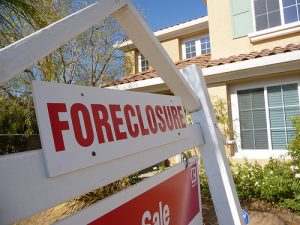
It is important for homeowners to receive the details about a reverse mortgage from a reputable and experienced source that specializes in this type of product to avoid being misinformed.
The borrower must remain in the home: If a borrower moves out or passes away, the loan becomes due. At this point the borrower or their heirs will have to decide if they want to sell or keep the home. They can sell the home to pay off the loan balance and receive any excess equity, or they can pay off the loan out of pocket and keep the home.
In the event the loan balance is greater than the value of the home, the borrower can either arrange to voluntarily turn over ownership of the property to the lender (Deed in lieu of foreclosure), or buy the home at 95% of the appraised value. It is important to note that a mortgage is a non-recourse loan, which means that you or your heirs will never have to pay more than the home is appraised for, and the lender cannot look to other assets for repayment.
The borrower is still financially responsible for property ownership: Reverse mortgage borrowers must continue to pay property taxes and homeowners insurance. They must also maintain the home according to the Federal Housing Administration requirements. Failing to meet these requirements can trigger a loan default that may result in foreclosure.
If you are a senior homeowner interested in learning more about a reverse mortgage contact a licensed loan advisor at 1 (800)976-6211 or click here to request a no obligation consultation to discuss your options.
Important Disclosures:
1 Federal Housing Administration (FHA) mortgage insurance premiums (MIP) will accrue on your loan balance. You will be charged an initial MIP at closing. The initial MIP will be 2% of the home value not to exceed $13,593. Over the life of the loan, you will be charged an annual MIP that equals .5% of the outstanding mortgage balance.
2 You will retain the title and ownership during the life of the loan, and you can sell your home at any time (at which time the loan becomes due). The loan will not become due and subject to repayment as long as you continue to meet loan obligations such as living in the home as your primary residence, maintaining the home according to the Federal Housing Administration (FHA) requirements, and paying property taxes and homeowners insurance. Failing to meet these requirements can trigger a loan default that may result in foreclosure.
